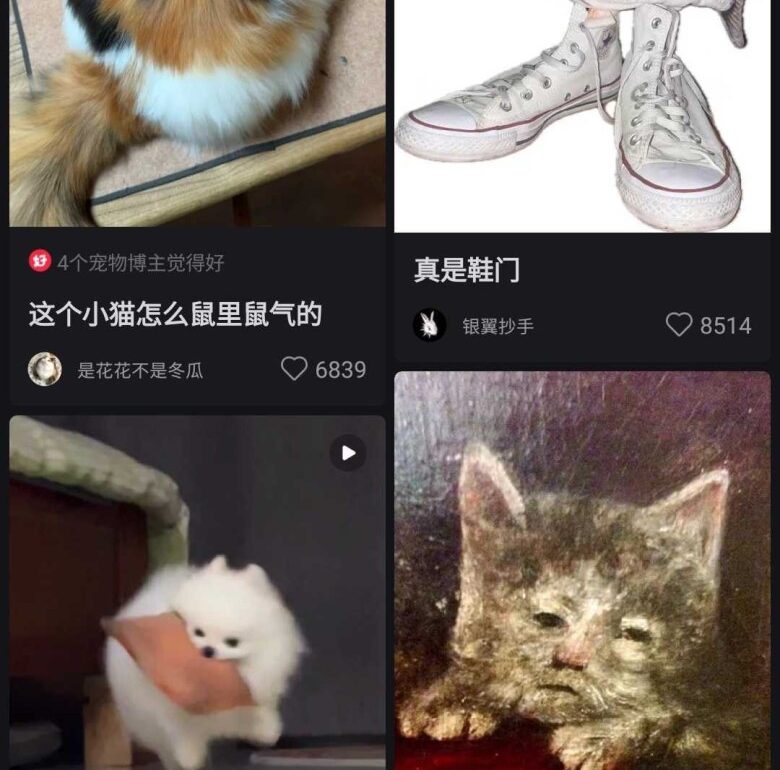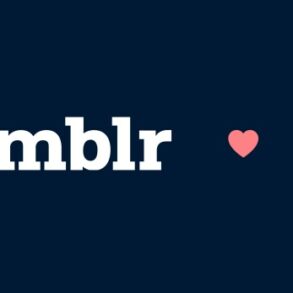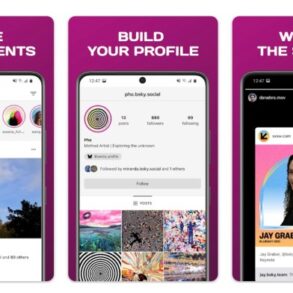Amid Elon Musk’s ongoing gutting of government agencies, President Trump’s propagandistic resuscitation of TikTok, and Meta CEO Mark Zuckerberg’s elimination of third-party fact-checking across Facebook, Instagram, and Threads, some netizens are abandoning ship and flocking to alternative platforms.
In the week leading up to the fleeting TikTok ban, over 700,000 users signed up for the Chinese app RedNote, while other independent platforms like Pixelfed and Cara also ascended to the top spots in mobile app stores. Meanwhile, Bluesky continues its upward ascent with more than 30 million users.
But what exactly are these new or newly popular social networking sites, and how are they different from X, Instagram, TikTok, and other well-known spaces?
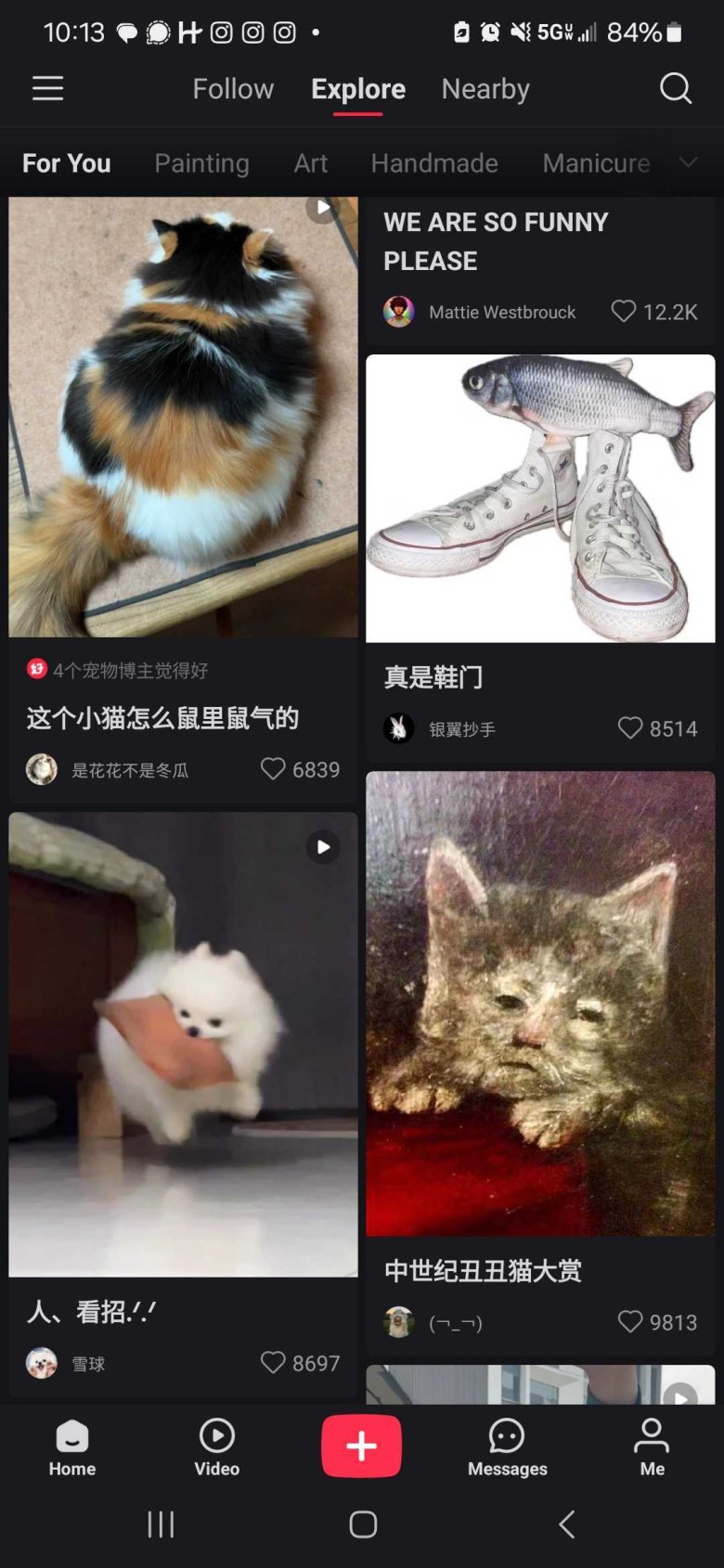
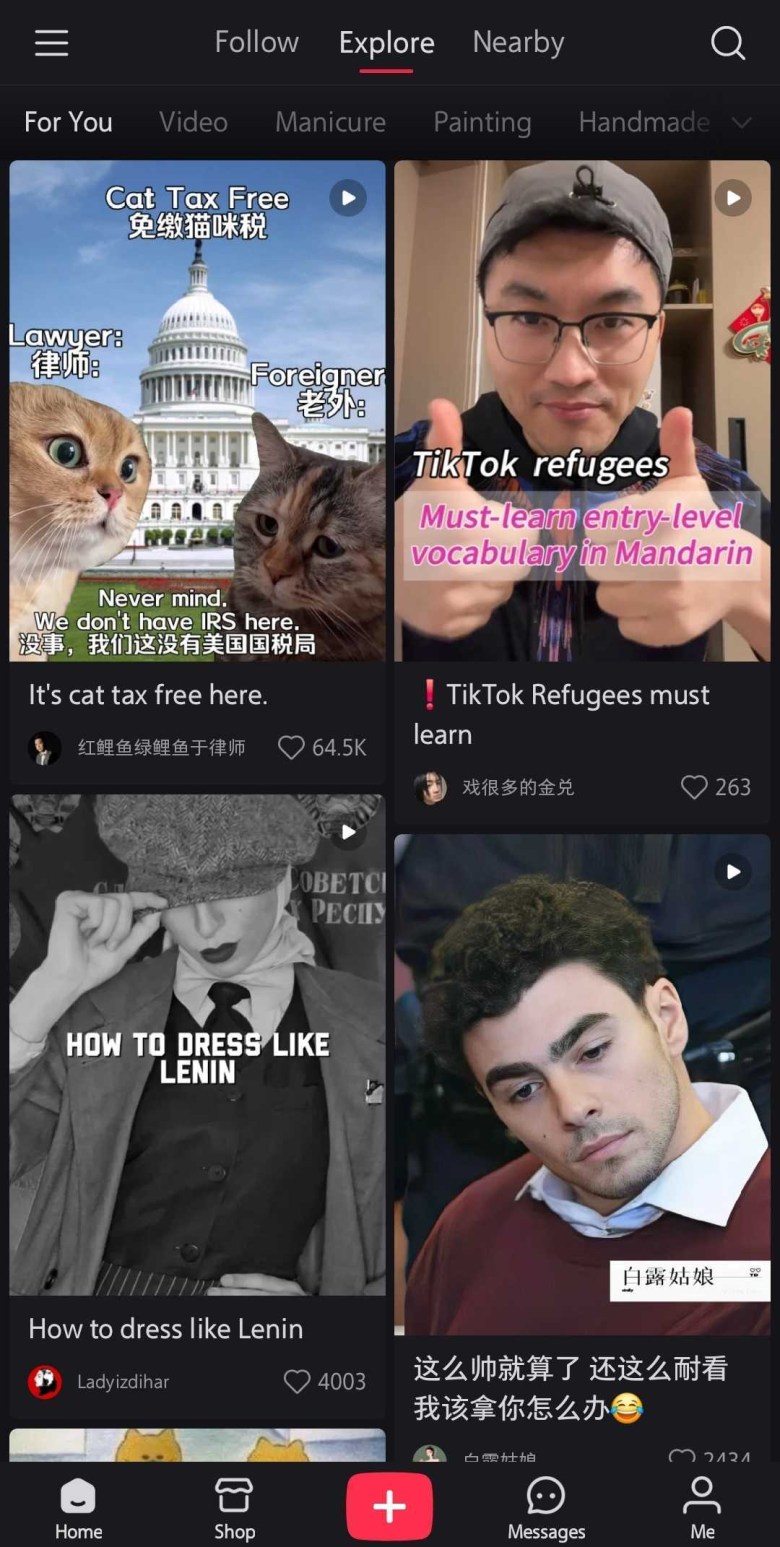
Referring to themselves as “TikTok refugees,” several thousand US-based users migrated to RedNote in protest of the expected ban and in search of a short-form content replacement. Formally known as Xiaohongshu (“Little Red Book”), RedNote launched in 2013 as an e-commerce-oriented platform where users would review products and offer shopping advice to a broader community.
It has since evolved into a hybrid of Pinterest and TikTok, where a “For You” page offers algorithmically curated posts (videos, images, or slideshows) combining what’s trending at the moment with content that falls into the category interests users select upon signing up. During the initial influx of international sign-ups, native Chinese users welcomed Americans and other foreigners to RedNote by answering questions about Chinese culture, memes, and the social customs of the app, and poking fun at the fear-mongering “Chinese spy” rhetoric that fanned the flames of TikTok’s security concerns.
However, it’s important to tread carefully before going all in on RedNote, as it has yet to officially translate its terms and conditions from Mandarin. A Google translation of RedNote’s terms indicate that upon signing up, users grant the platform a “free, irrevocable, non-exclusive, global and unrestricted license” that affords it the right and permission to “use, copy and display personal images, portraits, names, trademarks, brands, logos and other marketing and promotional materials and materials in user content.” It’s not a far cry from Meta’s license; the Terms of Service for Instagram, for instance, states that “we do not claim ownership of your content, but you grant us a license to use it.”
Some outlets have also shared concerns about foreign users being able to make informed decisions regarding RedNote’s data collection practices, privacy policy, and surveillance tactics as the app operates under Chinese law, and others expressed that the app is strict about censorship, with some reports outlining the alleged extent of forbidden and banned posts ranging from overt political messages, discussion of drugs or drug use, sharing of external links, and LGBTQ+ content.
This shouldn’t be surprising — while TikTok’s content moderation guidelines were admittedly more lenient around LGBTQ+ content, swearing, suggestive imagery, and political messaging, coded workarounds like “unalive,” “corn,” “grape,” and “seggs” originated on the platform to keep videos on the censored topics from being automatically flagged and removed or demonetized.
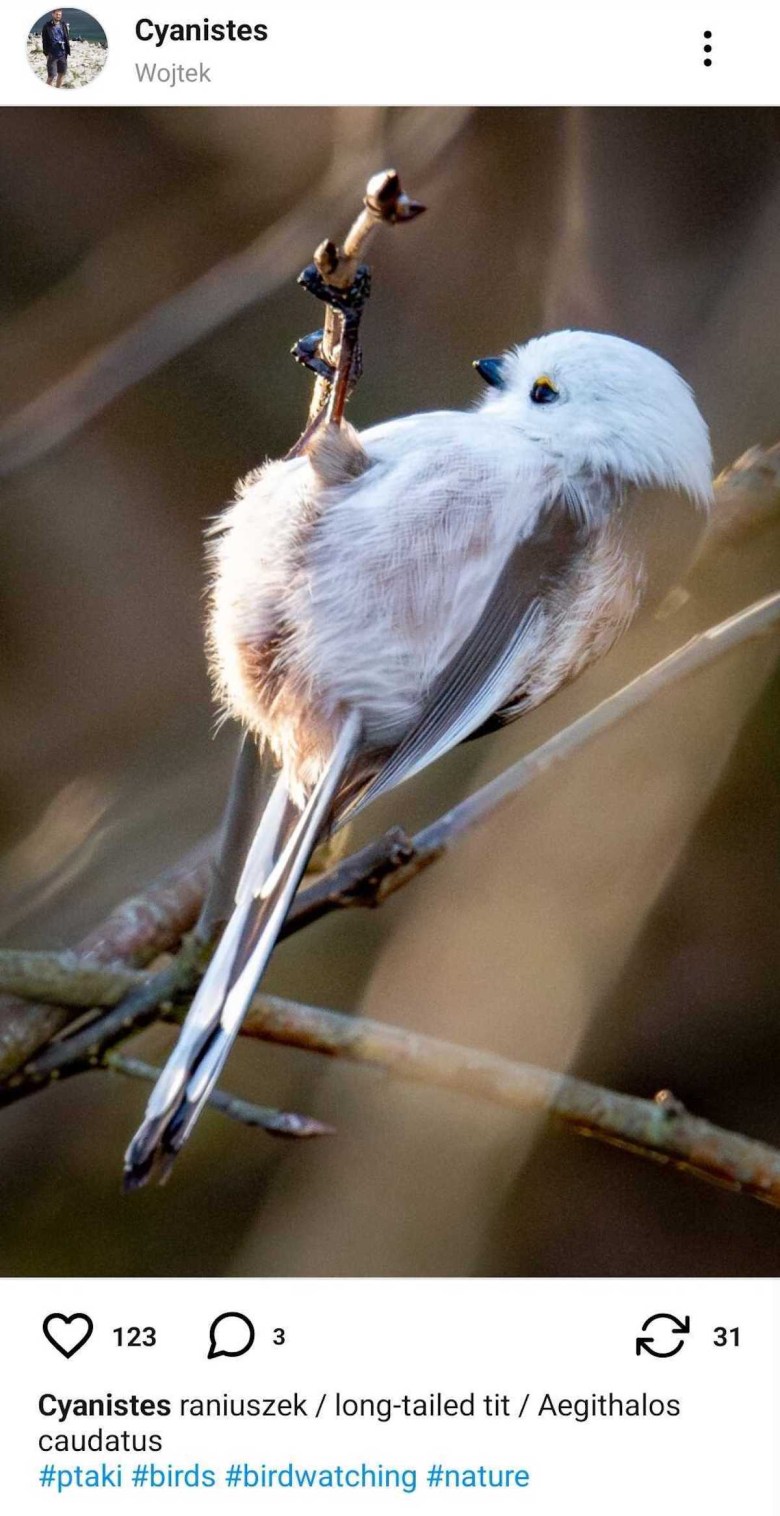

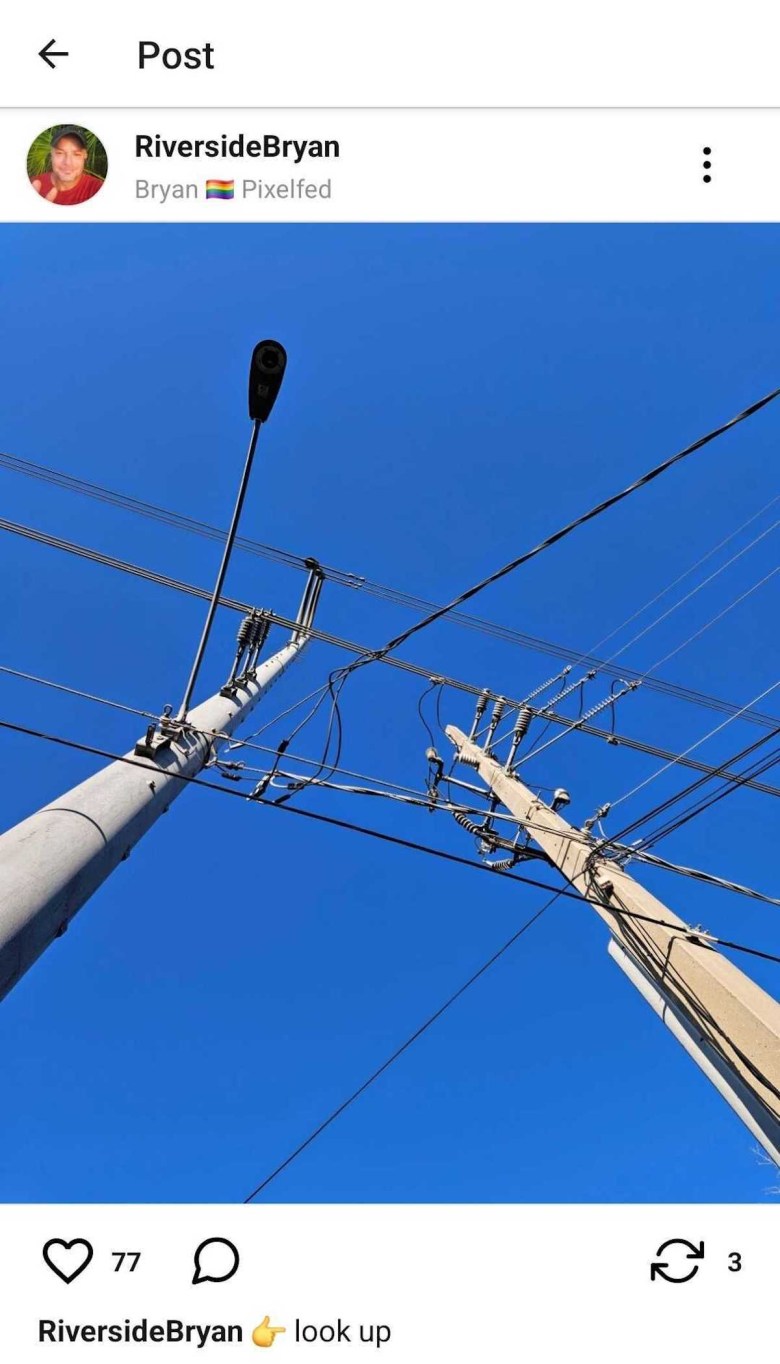
As we’ve seen with the transition from Musk’s X to Bluesky, some netizens are shifting away from certain platforms as they search for decentralized options and alternatives to tech oligarch-controlled sites.
Bluesky is currently gearing up to allow open beta testing for its forthcoming decentralized photo-sharing app Flashes to those with iOS after teasing the release in mid-January. On the other hand, a new photo-sharing platform Pinksky, which isn’t an official Bluesky product but is exclusively activated by signing into one’s Bluesky account and syncs one’s existing follower base, has already debuted. It’s library-quiet upon entry, though …
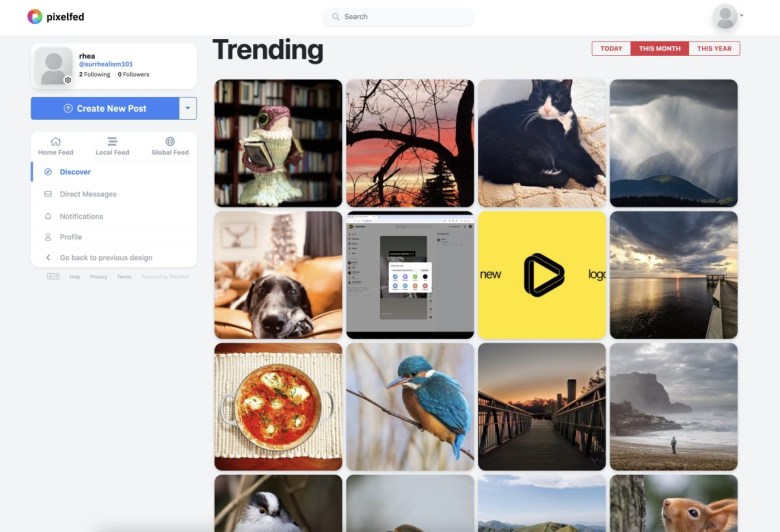
Another space that’s quickly but quietly growing its user base is Pixelfed, an open-source image sharing platform that, while offering similar features to Instagram, positions itself as everything that the Meta platform isn’t: decentralized, ad-free, chronologically curated feeds by default, respectful of user privacy, and anti-surveillance.
Developer Daniel Supernault debuted PixelFed in 2018 as a part of the “Fediverse,” a collective of decentralized social networking platforms (including Mastadon) that are connected under the common ActivityPub protocol. Users are able to either navigate through the largest operating server, Pixelfed.social, or join and create the server of their choice to begin sharing content and interacting with other accounts.
With less than half of a million active users at the moment, Pixelfed saw an unprecedented amount of new sign-ups in the week after Meta’s announcement of loosened content moderation policies.
Initially reported by 404 Media, Meta users accused the social media giant of instantaneously deleting comments and posts including links to Pixelfed on its platforms as the decentralized platform gained traction. (Meta confirmed in an email to Hyperallergic that this was a mistake and most posts with Pixelfed links have been reinstated.) Pixelfed released its first iteration of a mobile app for iOS and Android in mid-January — the platform was initially only available through desktop access or via third-party apps like Impressia.
The nostalgia for “Old Instagram,” the point in time when users were using the app for the fun of it by keeping friends and family updated through amateur photography prior to brand sponsorships and the over-saturation of influencers, can be channeled through Pixelfed. The larger servers are a little slow due to the influx of new users, so try your luck with some of the more niche ones.
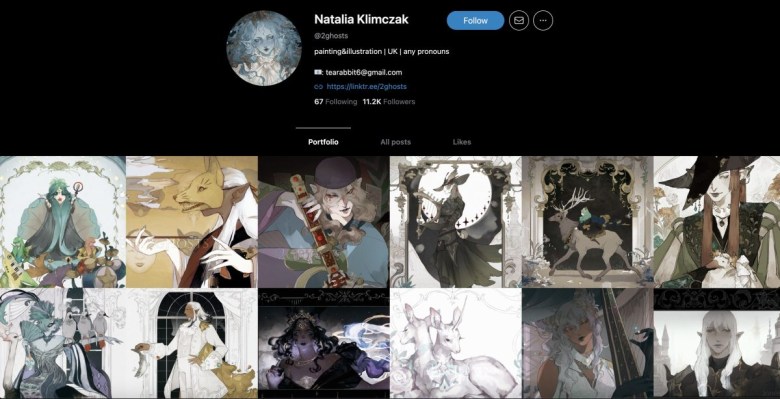
Artists who relied on Instagram and TikTok to share their work and gain a following around it might find refuge in the art-specific platform Cara, which only debuted in 2022.
Creator Zhang Jingna developed the platform (and later, the app) in acknowledgement of artificial intelligence models being trained on her and millions of other people’s artwork and designs that were shared online for generative image-making.
The premise of Cara is that it neither allows AI-generated content, nor permission for AI models to train themselves on any artwork or designs shared on the platform. Cara had a small base of around 40,000 users up until June 2024, when over 600,000 people fled to the app and platform in protest of Meta making it practically impossible for users to opt out of allowing its AI models to be trained on their content.
A selling point for the self-funded startup is that it offers artists protection from AI through a feature called “Glaze” — a tool which intentionally misleads generative AI models trained on images so that they cannot mimic a creator’s signature style in its image output.
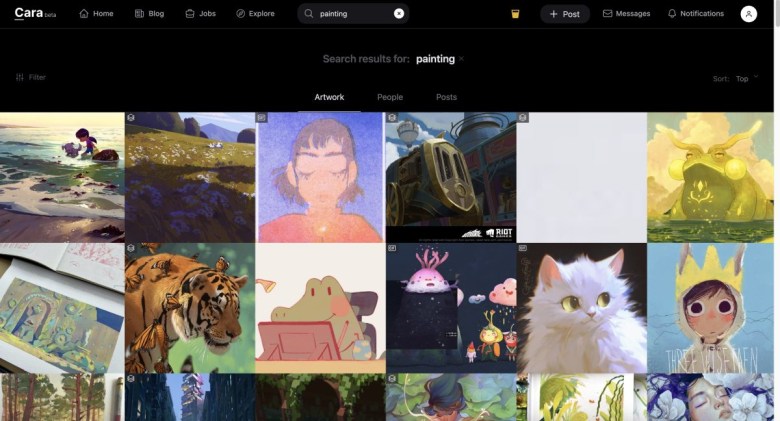
After the initial fervor around Cara died down, some have complained that the platform is a bit insular in terms of reach as it’s built for artists rather than art appreciators, recommending that people shift to Bluesky instead in order to build a more diverse following. Users appear to favor illustration and digital media over traditional fine arts, giving the platform more of a DeviantArt or ArtStation feel. It also has a job postings board for artists and animators, though it’s a bit quiet at the moment.
This is to say that all is not lost for the Chronically Online in the techno-billionaire oligarchy, but there’s some necessary troubleshooting to be done as we navigate the next steps. Remember, if we could get through the loss of MySpace, Vine, and ClubPenguin, we can pool our power to get through this moment, too.




